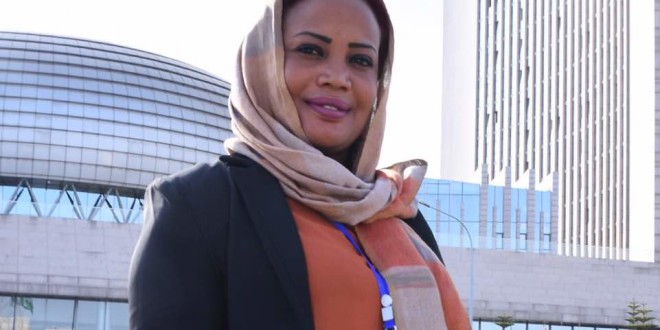Introduction
Women have been pioneers throughout Sudanese social and political history. Tireless campaigns by female activists have helped women achieve their deserved recognition and go on to defend the human rights of others. At the turn of the twentieth century, Babikir Badri campaigned for women’s right to education and triumphed, laying the foundation for all subsequent activities by women in Sudanese public life. In 1946 and 1947, the Sudanese Women’s League and the Educated Girls Association were founded with the mission of using this education to improve women’s economic and social status; together, these two organisations evolved in 1952 into the influential and still-active Sudanese Women’s Union.
Despite persistent gender discrimination, women have managed to play an active role in Sudanese public life as politicians, civil servants and trade unionists, among other roles. In 1953, the same year as women’s suffrage was achieved, Thurayya Al Dirdeeri was selected to sit on the committee drafting the Sudanese constitution as the nation prepared for the end of colonial rule. Women had won the right to stand in general elections by 1964, and the following year Fatima Ahmed Ibrahim of the Sudanese Women’s Union became both the first African and the first Arab woman to be elected as a member of parliament. A few years later, in 1969, women successfully lobbied for an amendment to the Family Law of Sudan—the only amendment to date—whereby police could no longer enforce the “house obedience” of a wife to her husband. Nafeesa Ahmad Al Ameen became the first woman to hold a ministerial portfolio in 1971, and twenty years later Agnes Lokono was elected the first female state governor. The Sudanese police force had its first female lieutenant general, pharmacologist Suad Al Karib, in 2002 (although it was another eleven years before Nur Al Huda became the next to follow in her footsteps). In 2011, Hala Abdul Halim of the New Democratic Forces Movement broke ground as the first woman to lead a political party, and it happened that in the same year Hanan Khalid became the first female manager of a Sudanese football club: Al Mourada.
Mismanagement of the state and resources since independence in 1956 has had an especially negative impact on women. The Sudanese government has tackled political crises with military conflict, in which women have become collateral damage—an effect amplified by the absence or unsustainability of development in certain regions. After forty years of encouraging progress, women’s rights were crippled in 1983 with the enforcement of the so-called September Laws (implementing sharia as the law of the land), which in turn gave rise to the highly restrictive Family Law of 1991 and Public Order Law of 1994. The situation worsened when the government refused to modify these laws in accordance with the Interim National Constitution of 2005 or to ratify the Convention on the Elimination of All Forms of Discrimination Against Women (CEDAW) and the Convention Against Torture. Each of these political decisions has contributed to increased violence against women nationwide and to the hindrance of their economic, social and political development. Female defenders of human rights continue to suffer greatly in this oppressive and rigid atmosphere, which hampers their movement and activities.
The ideologues in power today tend to abuse these already oppressive laws in order to restrict women’s participation in public life. Women face unmerited legal action and trials, arbitrary arrest and incommunicado detention, prohibitions against travel and work, physical abuse, sexual harassment or assault and threats of violence or even death. The absence of mechanisms by which women can defend themselves or file official complaints against the security personnel who carry out these violations makes women in public life extremely vulnerable.
It has become increasingly challenging for such women to establish a safe and stable environment in which to carry out their work. Media censorship prevents reporting on these crimes and makes it hard for victims to find solidarity and support in rural areas. Restrictions have been put in place making it difficult for organisations that support women to recruit voluntary support, which denies them access to training in addition to legal, psychological and medical assistance. Collectively, these measures and the violations themselves put immense pressure on the resources of female human rights defenders. The cases highlighted in this report reflect how the patriarchal security forces, under the guise of religion and doctrine, continue to commit crimes with impunity against women seeking to defend human rights.
Read full report here: Situation of Female Human Rights Defenders in Sudan: June 2016 – February 2018
Read the Arabic version of the report here
 African Centre for Justice and Peace Studies ACJPS | المركز الافريقي لدراسات العدالة و السلام
African Centre for Justice and Peace Studies ACJPS | المركز الافريقي لدراسات العدالة و السلام




